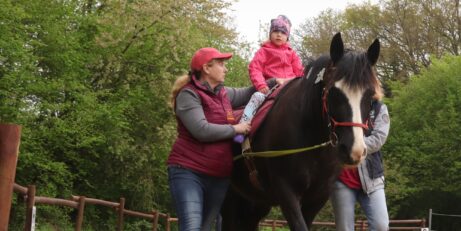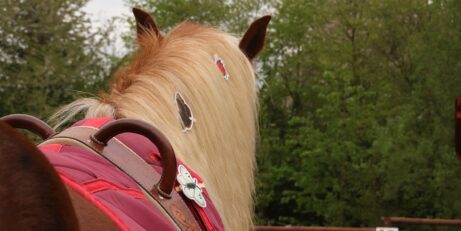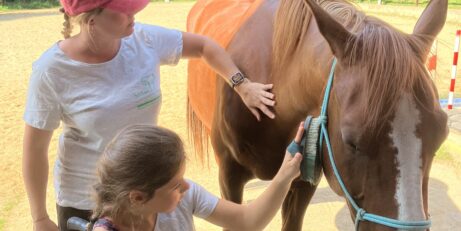The Silent Load: Why Therapy Equines Shouldn’t Be Called Therapists
In the world of Equine Assisted Services (EAS), we often speak with awe about how equines seem to “know” what clients need. We call them healers and therapists. But behind these well-meaning labels lies a hidden danger—one that places emotional and mental pressure on equines they never asked for, and too often cannot carry.
Around twenty years ago, we had a beautiful Belgian draft mare in our therapy team. She was deeply sensitive and gave her whole heart to every session. We adored her. Clients connected with her instantly, and we believed she truly loved the work. At the time, we spoke of her as if she could save the world. However, we lacked the knowledge and experience to understand what was happening truly.
Over time, she grew more tired. After therapy sessions, she would retreat to the farthest corner of the pasture, avoiding all contact. We thought she needed more rest, but we didn’t realise she was withdrawing emotionally. Then her health began to decline. She died at the age of 18. Looking back, I genuinely believe we drained her. We didn’t know how to set boundaries, and we didn’t realise she was taking on a responsibility that never should have been hers.
Equines are not therapists. They are not trained to carry emotional weight, nor can they say, “I’ve had enough.” When we call them therapists, we shift the responsibility for healing onto them, without the tools or the choice to refuse. This may be said with love, but it creates expectations they cannot understand, and that is not fair to them.
During a recent conversation with Deirdre Kennedy from Ireland, a therapist specialising in Equine Assisted Craniosacral Therapy, we explored how we can better protect equines in Equine Assisted Services. One key principle is teaching practitioners to remove all expectations from the equine—to recognise signs of emotional overload, to allow space, and to intervene when it becomes too much. Equally important is helping practitioners recognise when a client is beginning to experience a meltdown and step in to manage the situation themselves, rather than leaving it to the equine to absorb or resolve.
It is time we rethink our language and attitudes. When we romanticise equines as magical beings or emotional healers, we place invisible burdens on them. Emotional exhaustion is real. Burnout is real. And our equines deserve better.
We must stop calling equine therapists. They are our partners—sensitive, willing, and generous—but they rely on us to protect their well-being. Let’s honour them by stepping up as the professionals, not stepping aside.
Enjoyed this article? Download our free e‑book “10 Essential Insights into Equine Assisted Services” and discover practical tips you can start using today.
Would you like more inspiration, ideas, and professional insights? Join our Svítání newsletter and never miss an article, event, or course update.
Curious to deepen your knowledge in Equine Assisted Services? Explore our courses designed by experienced practitioners and start your learning journey with Svítání today.


